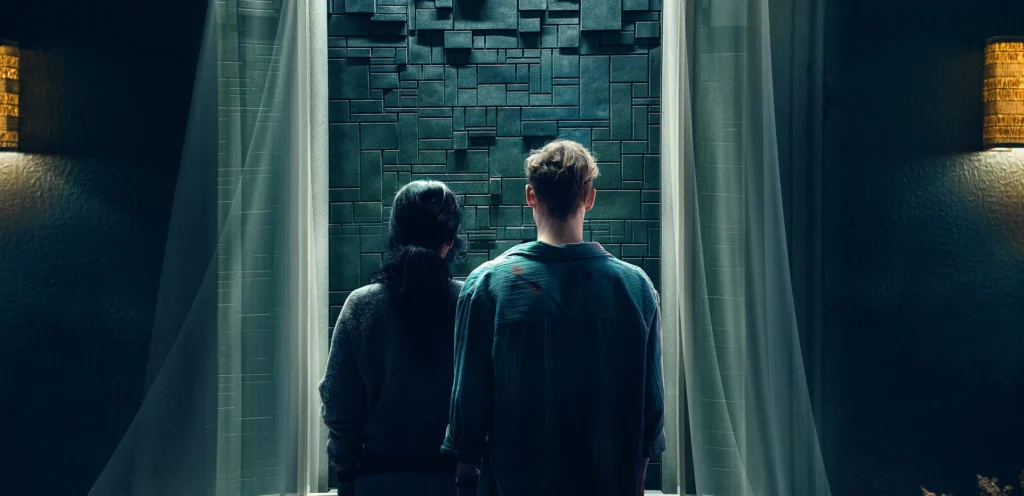
Occasionally, there’s a situational thriller, like say, Panic Room, that pays off with a supporting premise. Unfortunately, the same cannot be said for Netflix’s Brick (2025), a German film touted to be intense and thrilling, but it indulges itself far too much in its concept.
The story follows Liv (Ruby O. Fee) and Tim (Matthias Schweighöfer, Heart of Stone; Army of the Dead; Resistance), a couple struggling with their romantic relationship. Tim, a workaholic, is often too proud to admit his faults, while Liv, in an attempt to move their lives forward, buys a bright pink camper van to escape the city and start a new adventure for their relationship. The story implies a tragic event has brought their relationship to its knees, involving their unborn child. The issues are unspoken, adding a layer of complexity and emotional depth to their struggle.
Brick raises its head when Liv tries to leave the apartment in the early hours of the morning (attempting an assumed break-up at the same time because Tim is not forthcoming about her new plans), but the couple find themselves trapped. It’s a peculiar type of trapping. The front door is walled with black mysterious bricks. They soon learn that the entirety of their apartment, from windows to walls, is completely bricked up by some strange technological casing, and there’s no way of getting out. The couple can navigate between apartments by knocking down walls, which leads them to team up with another couple, and they can seemingly move up and down between flats as well.

The couple finds themselves in a situation of complete isolation, with no way of communicating with the outside world. The film effectively conveys this sense of immediate panic as they suddenly learn of their impending demise.
But Brick does not ride on the momentum of that feeling of panic. It transitions from a claustrophobic, mortal experience to a more open scenario that delves far too deeply into the reasons why they are trapped, and this shift in tone somewhat ruins the intensity.
In the good stories where characters are trapped with little hope, the selling point is their immediate need for survival and the brainstorming required to escape. Brick opens up the world relatively quickly as the main characters navigate apartments and become solely focused on the truth of their scenario, rather than their shortcomings. You’d think that food supplies, water, essentials, and routine panic would be the central points of their experiences, but these elements were weak in delivery. The experience did not match the emotions it evoked.
This is not a criticism directed at the cast, who seemed to understand their assignment, but rather at the script itself. Director Philip Koch focuses more on the conspiratorial aspect of the story, alongside a death count that feels measured and timed rather than intended for shock value.
I’m not saying I did not care for this mysterious brick that trapped the occupants in the building. I did. I also cared, to some extent, about the reasons why they were trapped. However, the ending of Brick makes the reasons less important for the overarching story. And, to be frank, the direction which the story should have followed was at the start – Liv and Tim’s unspoken and fractured relationship. While their frustrations boil over – and they do eventually talk – it’s more of a supplementary addition to the premise rather than a focal plot point.
Brick is not as thrilling as the trailer suggests, and that’s where the problem lies. As a standard thriller, entertainment is provided, but there’s so much more this story could have done and delivered. Instead, the film resigns itself to a generic play-by-play of “who dies” and the eventual attempt to escape. That’s not good enough for such a promising premise.


